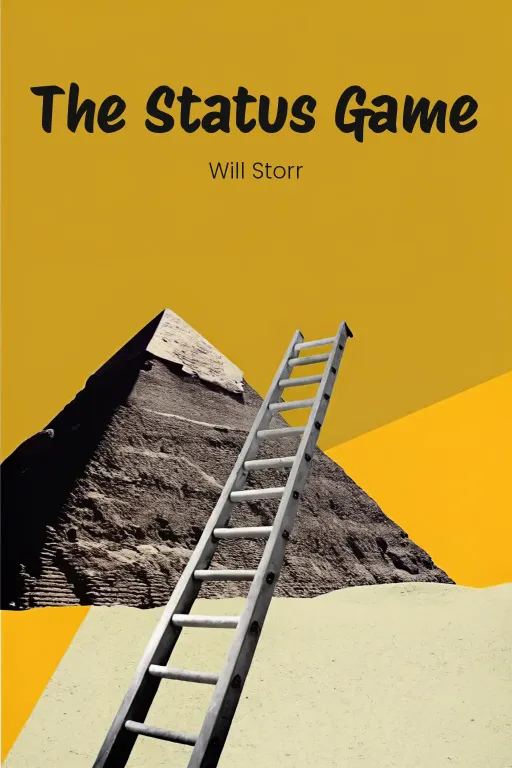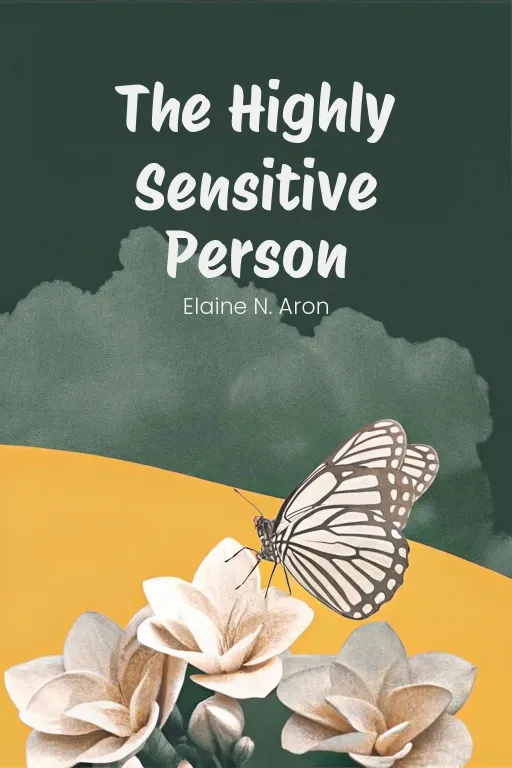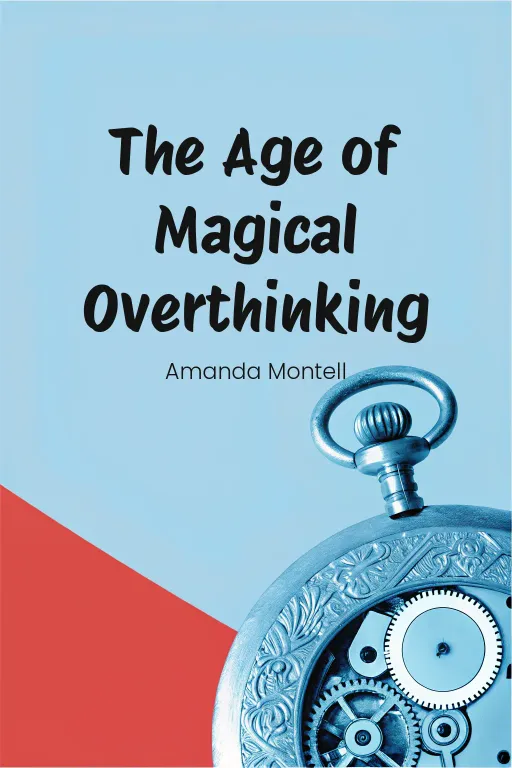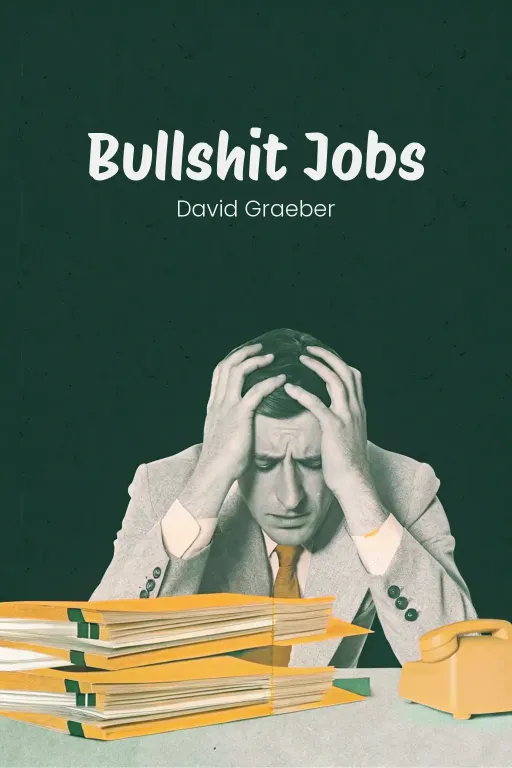
Find Your North Star: True Character Unveiled
Podcast by The Mindful Minute with Autumn and Rachel
Learn how to make yourself whole
Introduction
Part 1
Autumn: Hey everyone, welcome to the show! Let's kick things off with a question: When was the last time you really stopped to consider the difference between genuinely being a good person, and just, you know, “appearing” to be one? Rachel: Wow, Autumn, straight in with the existential questions, huh? It's a good one, though. Seriously, we're living in this crazy world obsessed with perfect LinkedIn profiles and filtered Instagram feeds. Does anyone even care about old-fashioned, quiet virtues anymore? Autumn: Exactly! That's what David Brooks grapples with in his book, The Road to Character. It's a fascinating exploration of what it truly means to live a life of depth and purpose. And, spoiler alert, it's not about the likes or the awards. It’s about humility, inner struggle, and dedicating yourself to something larger than yourself. Rachel: He doesn't just preach at you either, right? Brooks dives into the lives of these amazing figures—like Frances Perkins, who completely transformed after facing a huge personal tragedy, or Dwight Eisenhower, who battled his ego to serve a greater cause. Examples like that really make you stop and think. Autumn: Totally. And today, we're zoning in on three core ideas from the book. First up, that internal battle we all face, Brooks calls it Adam I versus Adam II—the ambitious go-getter versus the soul-searching side of ourselves. Rachel: So, like, a constant battle for your soul? Sounds intense. Autumn: Precisely! Second, we’ll look at how facing our flaws, really working through them, is key to growing true character. Rachel: “Flaws being like the fine print of a person” – you'd rather not look at it, but that’s where the truth is! Autumn: Yes, that's a great way to put it. And third, we’re going to dig into why Brooks believes real joy comes not from praise or achievements, but from acts of love and service. Rachel: From chasing the spotlight to nurturing the soul. Alright, folks, get ready to swallow your pride, because we're about to serve up some humility alongside these humblebrags. Let’s jump in!
Adam I vs. Adam II
Part 2
Autumn: Okay, so let’s jump right into David Brooks’ core idea: Adam I versus Adam II. It’s such a compelling framework for understanding character, capturing that internal struggle we all experience, isn't it? Adam I is your résumé-builder, focused on worldly success. Meanwhile, Adam II is about moral growth, nurturing humility and kindness. They’re essentially two conflicting sides of ourselves. Rachel: Exactly, and, let's be honest, we’re definitely living in an Adam I world. As Brooks puts it, Adam I is the one society applauds—the one chasing promotions, bigger salaries, bragging of success on social media. Autumn: Precisely! Society reinforces those résumé virtues—ambition, productivity, material success. But here’s the kicker: Brooks warns that prioritizing Adam I can leave you feeling empty. Sure, you might amass wealth or accolades, but what happens when you’re lying awake at night, questioning everything? That’s when Adam II, the moral, introspective self, starts calling. Rachel: Okay, but is Brooks being a bit too nostalgic here? We get it—things were once “humble and wholesome," and now we’re all shouting our achievements from the rooftops. But is ambition “really” that bad? Where’s the line between healthy drive and this “Big Me” culture? Autumn: That’s a valid point, Rachel. I don’t think Brooks is saying ambition is inherently wrong. Adam I virtues—discipline, drive, creativity—aren't harmful in themselves. But he argues that they shouldn’t overshadow Adam II, because those deeper, moral virtues give our achievements real meaning. Rachel: Hmm. So it’s less about climbing the ladder and more about asking why you're climbing it in the first place? Autumn: Exactly! And Brooks grounds this dichotomy in real-life examples, like Frances Perkins. Her story powerfully illustrates someone who lived an Adam I-focused life until a shattering event forced her to re-evaluate everything. Rachel: Right, the Triangle Shirtwaist Factory fire in 1911. For anyone unfamiliar, this was a horrific industrial disaster in New York. A fire broke out in a garment factory, and because the doors were locked—let that sink in for a moment—over 100 workers, mostly young immigrant women, were trapped and killed. Autumn: Exactly. Perkins witnessed it firsthand. She'd grown up in an upper-class environment where achievements—good grades, societal standing—mattered most. Seeing the bodies of those women and knowing they died because no one had prioritized their safety shook her to her core. Something shifted inside her. Rachel: And that's when Adam II “really” woke up for her? Autumn: Yes. Witnessing that tragedy forced her to confront a harsh truth: her achievements and privilege weren’t enough. She decided to dedicate herself to labor reform, to fight for better workplace safety laws, and to give these vulnerable workers a voice. Rachel: What strikes me is how it wasn't this quick, feel-good transformation. It was gritty. Perkins didn’t just start volunteering—she dove headfirst into the mess of politics, demanding accountability from powerful industrialists. That takes “real” guts. Autumn: Absolutely. And it highlights Brooks’ point that moral character isn’t cultivated in moments of ease. It’s shaped by struggle, by wrestling with our flaws and discomfort. Perkins could’ve easily ignored what she saw and continued living her comfortable life, but she chose a purpose beyond herself. Rachel: Purpose through pain—heavy stuff. But if Adam II thrives through humility and service, how do we balance that with the relentlessness of modern life? Perkins had a unique turning point, but, you know, most of us are just trying to pay the bills without losing our minds. Autumn: And that’s a “very” real tension, one Brooks acknowledges. He isn’t dismissing the pressures of today’s world—Adam I does help us survive in a competitive society. But it’s about recalibrating our priorities. Are we constantly chasing external rewards, or are we making time to cultivate virtues like patience, generosity, and perseverance? Rachel: Recalibrate—so like, hitting pause to ask, “What kind of person am I becoming?” Autumn: Exactly. It’s not about rejecting ambition entirely; it’s about ensuring your ambitions align with your values. Look at Frances Perkins again—she didn’t stop being ambitious, but she redirected that drive toward a higher moral purpose. Rachel: Fair. But Brooks loses me a bit with this idea that today’s culture has abandoned humility. He brings up that moment during World War II, where Bing Crosby and a bunch of A-listers hosted a variety show the day after victory was declared. Autumn: Yes, and Brooks contrasts their reserved, reflective demeanor with the modern-day emphasis on self-congratulation. Rachel: Right, because in today’s world, we’d have people live-streaming their every “humble reflection.” But isn’t humility a bit idealized in Brooks’ narrative? I mean, wartime America had its own issues—it wasn’t exactly the moral high ground he paints it as. Autumn: True, and Brooks isn’t arguing that one era was perfect while another’s irredeemable. His point is that there's been a noticeable cultural shift toward self-promotion, branding, and individualism, and we’re seeing it play out in ways that undermine deeper connections and inner growth. For example, narcissism levels have skyrocketed compared to previous generations, which suggests this shift isn’t just anecdotal. Rachel: Fair enough. So, Adam I gets us through life’s externals—career, reputation, rent. But Adam II, that’s the one who asks, “What do I stand for?” It’s a balancing act, and neither side wins completely. Autumn: Exactly. Brooks challenges us to lean into the tensions of those two selves—to let our struggles with ambition and humility shape us, rather than ignoring the moral questions altogether. It’s a messy process, but that’s where “real” character begins.
Struggle and Self-Mastery
Part 3
Autumn: And that naturally brings us to how these struggles … these inner conflicts between ambition and humility … actually shape deeper character. It really connects with David Brooks' argument about adversity and self-mastery being key to moral development. Let's start with Dwight Eisenhower. His story is such a compelling example of leadership forged through personal battles. Rachel: Right, Ike … the D-Day mastermind. You wouldn't immediately think of “struggle” when you picture him, would you? He's the picture of calm, collected leadership. But Brooks reveals that Eisenhower had to overcome his own emotional challenges to become that stable figure we admire. Autumn: Precisely! Eisenhower had a naturally fiery temper, a fierce anger that could have been destructive. And how he dealt with it is fascinating. Brooks shares this story from his childhood: young Ike threw a huge tantrum because his mother wouldn't let him participate in something he wanted to do. In his frustration, he punched a tree until his hand bled. Rachel: Wow, that's a vivid image. Little Eisenhower picking a fight with a tree and losing badly. But what happened next is key, right? Autumn: Exactly. His mother didn’t punish him harshly. Instead, she gently explained the danger of letting anger control him. It was a pivotal moment for Eisenhower. He realized that unchecked impulses would control him. And that insight became a lifelong practice. By the time he was leading Allied forces in World War II, you could see the results of that self-discipline. Rachel: So, seeing Eisenhower as this incredibly composed leader, we're really seeing someone who spent years taming his ego and emotions. It's like he was pruning a tree that once broke his own hand. Sorry, I had to! Autumn: I love that metaphor, Rachel! And this self-control wasn't just about temper management. It extended to his humility and sense of duty. Brooks quotes Eisenhower's memoir, where he talks about a soldier's duty being to serve wherever they're placed. It’s a simple idea that cuts against ego and self-glorification. He embraced responsibility without seeking personal recognition. Rachel: But let's be real. Eisenhower's humility feels, well, a little situational, doesn't it? He was in a highly structured environment – the military – with clear rank and duty. Do you think his ability to suppress his ego would hold up in today's corporate world, where self-promotion can feel essential for survival? Autumn: That’s a really insightful point. The modern world definitely makes humility more challenging. But I think the core principle still applies. Eisenhower's story shows us that humility and self-control are deliberate choices, rooted in consistent effort, no matter the situation. Actually, those values are even more important where narcissism is tempting or even rewarded. Rachel: Okay, I'll concede that. Eisenhower's ability to control his temper during wartime beats my attempts to stay calm in traffic. But let's talk about someone who faced a different kind of battle: Samuel Johnson. He wasn't storming beaches, but he was wrestling with intensely personal demons. Autumn: Absolutely. Johnson's story is deeply personal and, in some ways, more relatable. He struggled with insecurities, physical ailments, and what would likely be diagnosed as clinical depression today. What's remarkable is that he didn’t let those struggles define him. He used them as fuel for self-reflection and moral growth. Rachel: And Johnson wasn’t afraid to be brutally honest about his flaws. I love this quote from his journals: "The greatest triumph is not in the avoidance of sin, but in the conscience that recognizes it." He’s saying it’s not about perfection, it’s about knowing where you fall short. Autumn: Exactly. Johnson understood that moral growth is a process. One mistake doesn't define you, but it should challenge you to improve. His writing is full of this tension between recognizing his flaws and striving to align his actions with his values. That constant effort, that ongoing self-examination, shaped his character. Rachel: But here’s the thing, Autumn. Doesn’t all this relentless self-reflection sound exhausting? I mean, yes, Johnson achieved greatness, but he also seemed to carry this perpetual weight of his imperfections. Is there joy to be found in a life so focused on struggle and self-mastery? Autumn: That’s such a good question, Rachel, and it’s one Brooks addresses. He acknowledges that self-mastery is hard, but it also leads to a deeper, more lasting joy – the kind that comes from knowing you’ve faced your flaws and grown stronger. Johnson struggled, but you also see moments of joy in his accomplishments and relationships. Rachel: So it’s not about wallowing in guilt, but using that guilt as a compass for growth? Like Eisenhower's temper, but on an intellectual and emotional scale? Autumn: Exactly. And both Eisenhower and Johnson show us that moral growth isn't about eliminating struggle, it's about engaging with it to become better. They didn't suppress their true selves; they transformed themselves through perseverance and humility, building legacies that go far beyond resumes or historical achievements. Rachel: So what we're saying is that struggle isn’t a detour. It’s the path. Whether commanding troops or battling your inner critic, those moments of friction reveal what you’re really made of. And maybe, just maybe, a little of Eisenhower-level composure or Johnson-esque self-awareness might rub off on us.
The Path of True Fulfillment
Part 4
Autumn: So, shifting gears a bit, Brooks looks at how love and community “really” shape who we become, which is where things get interesting, action-wise. He kind of synthesizes all the themes into this "Path of True Fulfillment," as he calls it. The core being that joy isn't about applause or awards. It’s about humility, service, and the guts to love deeply. Rachel: Right. And he backs it up with examples like George Marshall and Frances Perkins, embodying this "humility code." But you know, Autumn, this "fulfillment through service" still feels kinda abstract. I mean, how do you actually live the humility code in a world that's all about achievement and, like, multitasking, not reflection and connection? Autumn: Good point, Rachel! Let’s unpack how Brooks describes it. The humility code? It’s “really” a guide to grounding yourself with moral and spiritual depth. Principles include selfless action, genuine humility, embracing struggle for growth, and prioritizing relationships. Not just ideals, they're the foundation for a life balancing outward ambitions with inner richness. Rachel: Okay, but being selfless in the “real” world—where, let's be “real,” it doesn't always pay the bills—is easier said than done. How does Brooks connect these principles to concrete, daily actions? Autumn: Totally. Let’s start with selflessness. Brooks says fulfillment comes when we focus less on our own desires and more on others' needs. It's not neglecting yourself, but orienting your actions to contribute to a larger whole. George Marshall is a prime example here. Rachel: Yes, Marshall. His life is a masterclass. Not only did he help win World War II, but he was key in rebuilding Europe. It would have been easy—and tempting—to bask in the glory, right? Autumn: Exactly! Instead of just basking in military wins, he took on the massive challenge of the Marshall Plan. Aiming to rebuild war-torn Europe and stabilize societies wrecked by conflict. Rachel: What's striking about the Marshall Plan is how forward-thinking it was. Not just fixing the mess, but trying to create lasting peace. But why? Just duty, or something deeper? Autumn: Definitely deeper. Brooks highlights Marshall's belief in selfless service. Approaching life wanting his actions to benefit others, even if it meant personal sacrifice. For example, when President Roosevelt wanted him as Supreme Allied Commander, Marshall reportedly refused to lobby for the position—believing his contributions shouldn’t rely on self-promotion. Rachel: Refreshing in a world where people clamor for shout-outs on LinkedIn. But that humility must've been hard. Stepping back and saying, "It's not about me, it's about the team"—how many of us can “really” do that? Autumn: Right, it’s tough. But that’s the core of the humility code: Genuine humility requires recognizing you're not perfect and choosing to serve regardless of self-interest. Tying back to Brooks’ second principle—embracing struggle as an opportunity. Marshall didn’t reach that wisdom overnight. Facing hardships—external and internal—honed his moral character. Rachel: So, million-dollar question: Does genuine humility—like Marshall's—naturally lead to fulfillment, or is it always sacrifice? Does selflessness pay off emotionally, or is it just doing "right"? Autumn: That’s where Brooks' idea of moral imagination comes in. He says selflessness doesn’t just lead to fulfillment but transforms how we perceive joy. Not fleeting individual achievement, but lasting connection, love, and knowing you’ve made a “real” impact. Rachel: Okay, but let’s bring Frances Perkins back. She wasn’t just imagining a better world; she was facing “real” pain. Do we need to suffer to unlock this moral imagination? Autumn: In a way, yes. Brooks suggests struggle, personal or shared, often sparks moral growth. Perkins’ life changed seeing the Triangle Shirtwaist Factory fire which awakened her moral imagination. She could’ve walked away, but instead channeled her grief into a relentless fight for labor rights. Rachel: So struggle refines character. But how does this apply to us? Not everyone has a “Marshall Plan” moment or witnesses a tragedy like Perkins. Can ordinary people cultivate this moral imagination? Autumn: Absolutely, Rachel. It doesn’t have to be huge. Moral imagination pausing to ask, “What do others need from me? How can I make choices that create lasting good?” Mentoring at work, volunteering, advocating, or simply being present for loved ones. Rachel: So less about big heroics, more about daily acts of meaning. But devil’s advocate: What if focusing on others leaves you burnt out, especially when selflessness feels unrewarded? Autumn: Valid concern! But Brooks isn’t suggesting self-neglect. Balance is key—nurturing your inner Adam II while connecting with others. Cultivating relationships and aiming for virtues that enrich both your life and those around you. Which leads to his fourth principle—prioritizing relationships over accomplishments. Rachel: Prioritizing relationships over accomplishments—simple in theory but tough in practice, right? Especially with deadlines and family obligations. How does Brooks suggest we live that out? Autumn: He suggests rethinking success. Instead of defining yourself by Adam I resume metrics, frame your life around the eulogy virtues—what people remember fondly about you at your funeral. Were you kind? Were you loyal? Did you build a community and love deeply? Those are the true marks of fulfillment. Rachel: So Brooks is challenging us to rewrite the scorecard of life—from trophies to lives touched. Thought-provoking stuff, Autumn.
Conclusion
Part 5
Autumn: So, to bring it all together, David Brooks in “The Road to Character” really asks us to look at that inner conflict we all have—the Adam I who's chasing after the corner office, and the Adam II who's yearning for something deeper, something more virtuous. And through the stories of people like Frances Perkins and Dwight Eisenhower, we see that real character isn't about being perfect. It's about how we handle life’s curveballs, how we embrace humility, and how we find meaning in helping others. Rachel: Right, and it's pretty clear that while ambition and hitting those milestones definitely matter, they're not the whole story, are they? What really defines us, what people remember, are those "eulogy virtues"—the kindness, the courage, the connections we build along the way. Autumn: Exactly. Brooks is challenging us to really rethink our priorities, to ask ourselves some tough questions. Are we chasing applause, or are we chasing meaning? Are we living for personal glory, or for that deeper sense of fulfillment that comes from loving and giving? Rachel: Makes you stop and think, doesn't it? And the thing is, it's not about doing something huge or waiting for the perfect moment. It's about the little things, the daily choices. Choosing patience over snapping, generosity over being stingy, and connecting with people instead of shutting them out. Autumn: So, here’s what I want you to think about: take a moment to check in with yourself, with your own "scorecard" for life. Are you only focused on your resume, or are you also valuing the qualities that will define what you leave behind? Rachel: Because, let's be honest, the world might forget what your job title was, but the people in your life won’t forget how you treated them, you know? Choose wisely. Choose what “really” matters. Choose who “really” matters. Autumn: And that's “really” where the journey to character begins. Thanks for joining us today. Until next time, take care, and “really” focus on what makes you whole—inside and out. Rachel: Catch you next time, everyone. And remember, sometimes the quiet choices speak the loudest.









